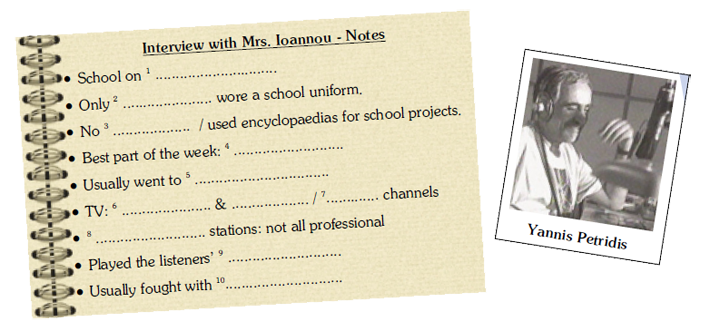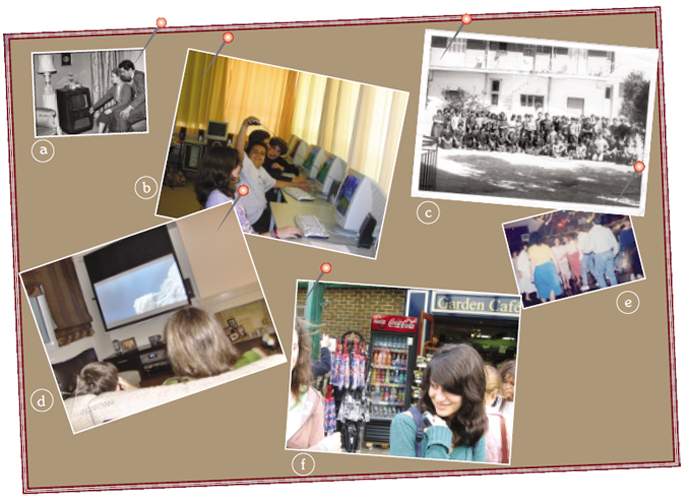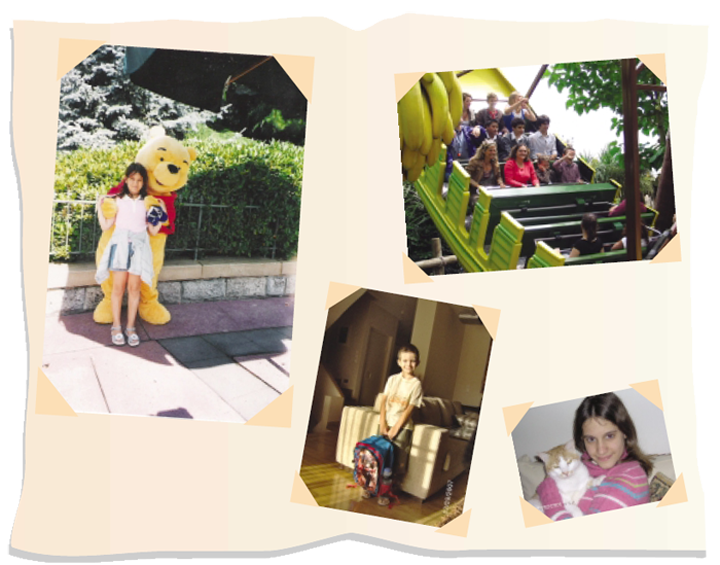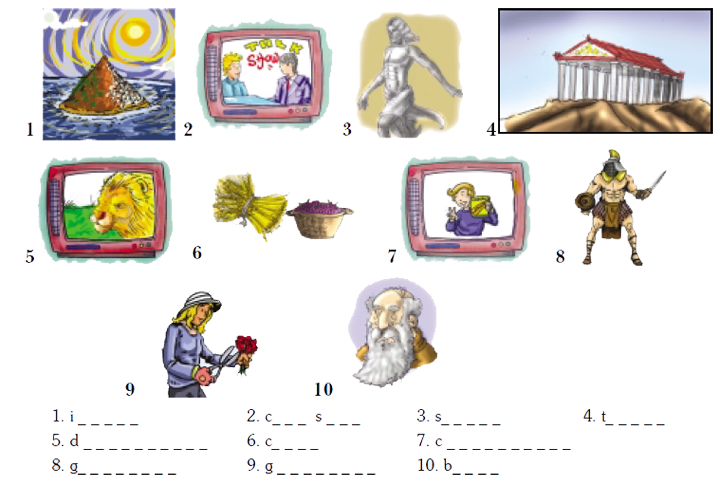1 |
Put the following words in three groups: On TV / On the radio / On both.
Then, listen and check. |
 |
This text will be replaced
|

|
soap opera / police drama / cartoon / quiz show / chat show / documentary /
music programme / sports programme / game show / the news / commercials /
breaking news / phone-in programmes / viewers / listeners
2 |
Which programmes do you prefer? Which ones do you never watch or listen
to? Tell each other. |
|
Technology
3 |
Choose from
on/ from / to / -
to complete questions a-f.
Then, listen to check. |
 |
This text will be replaced
|

|
4 |
In pairs, ask and
answer questions a-f.
Then, tell the class
what you have learnt
about your partner. |
|
a. How often do you surf ............ the Internet
b. What do you usually find ............ the Internet
c. When do you connect ............ the Internet
d. What do you usually download ............ the Internet
e. Do your parents use............ the Internet
f. Who else in your family goes ............the Internet
|
Talking about past habits and states - Past Simple / used to
1 |
Study the example sentences and complete the Grammar table. |
a. We looked for information in encyclopaedias.
b. All girls hated their uniform.
c. TV used to be black and white.
d. Did you use to go out with your classmates? Yes, I did / No, I didn't.
e. Boys didn't use to wear a school uniform.
Habits and states in the past

|
Choose from a-e:
- Past Habits: sentences .... / .... / ....
- Past States: sentences .... / ....
|
| How do we form the negatives, questions and short answers of used to? |
see Grammar Appendix, pages 170 - 171
|












